
Charmosyna

amabilis
Size:
18 cm (7 in)
Weight:
Not recorded.
Subspecies including nominate:
one
Colour Adult:
Both adults generally green; red cheeks, lores and throat, throat being bordered below by thin yellow line; dark red thighs; tail green tipped with yellow, with red at side feather bases. Beak orange. Eye yellow.
Colour Juvenile:
As in adults but red less pronounced on cheeks and throat, bordering yellow line faint. Beak brown/orange.
Call:
High-pitched and brief squeaks. Calls when in flight or feeding.
More Information:
Content Sources:
CITES
Avibase
BirdLife International
Cornell Lab of Ornithology/Birds of the World
A Guide to Parrots of the World, Juniper and Parr, 1998
Parrots: Status Survey and Conservation Plan 2000-2004, Snyder, McGowan, Gilardi and Grajal, 2000.
Parrots of the World, Forshaw, 2006. 2010 edition
Vanished and Vanishing Parrots, Forshaw, 2017.
Captive Status:
Not found in captivity.
Longevity:
—
Housing:
—
Diet:
—
Enrichment:
—
Nest Box Size:
—
Clutch Size:
Not recorded.
Fledging Age:
—
Hatch Weight:
—
Peak Weight:
—
Weaning Weight:
—
World Population:
Fewer than 50 mature individuals, decreasing.
IUCN Red List Status:
Critically Endangered
CITES Listing:
Appendix II
Threat Summary:
A BirdLIfe ‘restricted-range’ species. The only confirmed records since the 19th century have been from Viti Levu, where small flocks of up to six birds have been recorded. Predation by introduced mammals, especially Black rats (Rattus rattus) and logging threaten these birds. Has potentially been extirpated from its stronghold in Viti Levu. The last reliable sighting was in 1993, but one sighting at Mt Tomaniivi on Viti Levu in 2002 is supported by detailed field notes.
Range:
Recorded from Viti Levu, Ovalau, Vanua Levu and Taveuni (Fiji Islands group).
Habitat:
Mature upland rainforest to 1000 m (3280 ft); high up in the forest canopy, therefore difficult to spot.
Wild Diet:
Observed feeding on nectar, pollen and fruit.
Ecology and Behaviour:
Holyoak (1979) noted sightings of five birds, a pair and single birds. Inconspicuous and hidden in high canopy, often fluttering between trees.
Clutch and Egg Size:
Not recorded.
Breeding Season:
Not recorded.
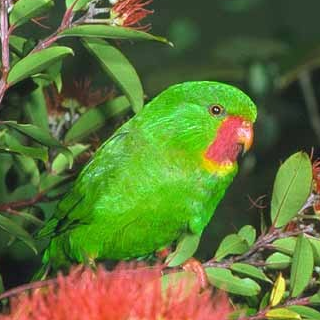
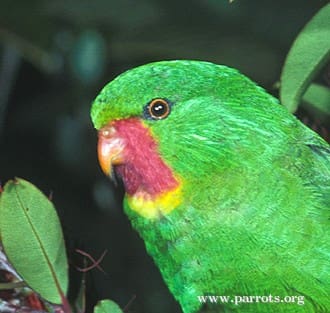

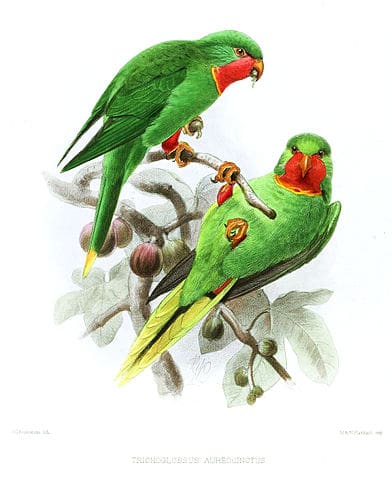
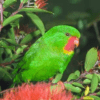
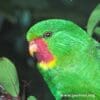
![© John Gerard Keulemans [Public domain] via Wikimedia Commons](https://parrots.org/wp-content/uploads/2023/01/wpt_Red-throated-Lorikeet_1079-3-100x100.jpg)
![© John G. Keulemans [Public Domain] via Wikimedia Commons](https://parrots.org/wp-content/uploads/2023/01/wpt_Red-throated-Lorikeet_1079-2-100x100.jpg)